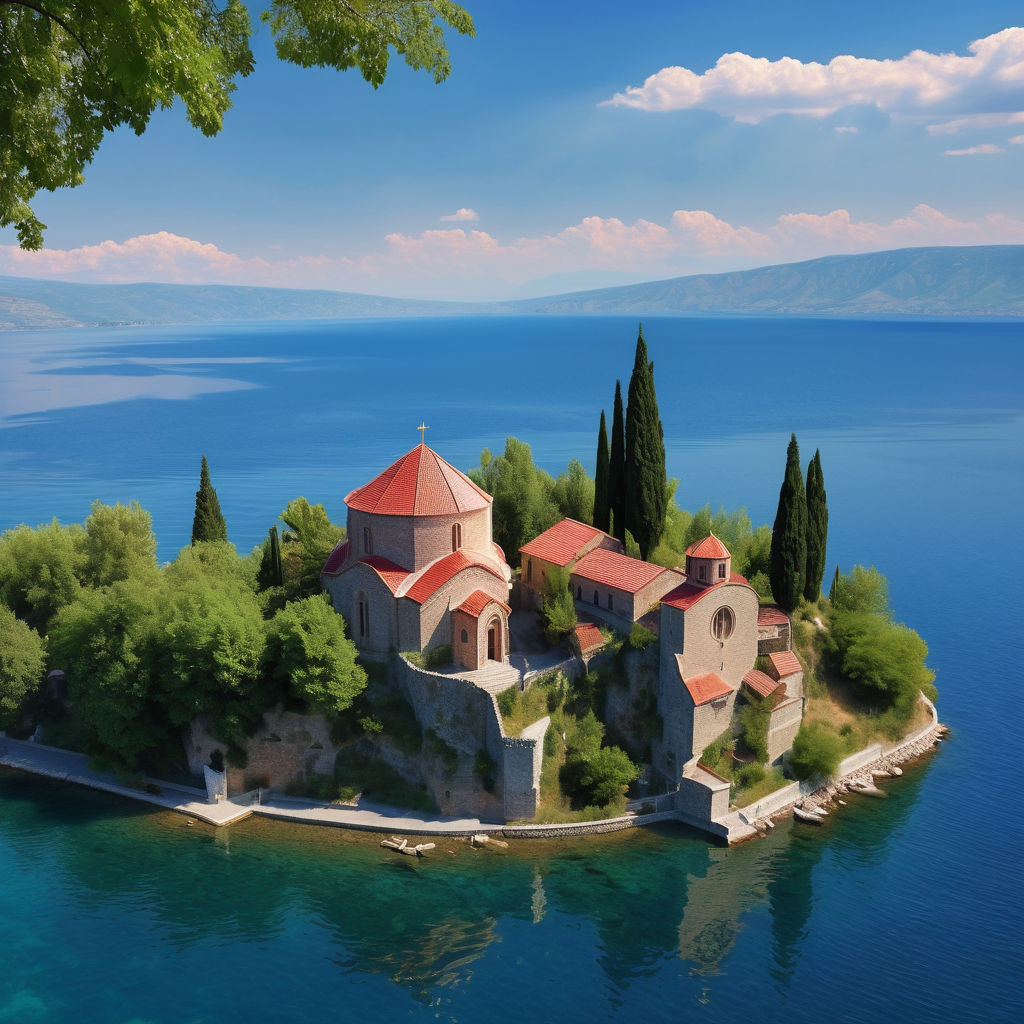Introduction to North Macedonia: Culture, Heritage, and Cross-cultural Engagement
Discover the Rich Cultural Heritage and Cross-cultural Connections of North Macedonia

Introduction to North Macedonia
North Macedonia, officially known as the Republic of North Macedonia, is a landlocked country located in Southeast Europe on the Balkan Peninsula. It is bordered by Kosovo to the northwest, Serbia to the north, Bulgaria to the east, Greece to the south, and Albania to the west. The capital city, Skopje, is the largest city and serves as the political, economic, and cultural hub of the country. Other major cities include Bitola, Kumanovo, Prilep, and Ohrid, each contributing to the nation's rich cultural mosaic. North Macedonia boasts a diverse cultural heritage influenced by its history of various civilizations, including the ancient Macedonians, Romans, Byzantines, Ottomans, and Slavs. The country is renowned for its historical sites, such as the ancient city of Heraclea Lyncestis, the Ohrid region with its Byzantine churches, and the Skopje Fortress. Traditional music, dance, and art play a significant role in Macedonian culture, with folk festivals and celebrations like the Ohrid Summer Festival showcasing the country’s artistic talents. Macedonian cuisine, featuring dishes like tavče gravče (baked beans), ajvar (pepper relish), and kebapi (grilled minced meat), reflects the region’s agricultural richness and culinary traditions.
Cross-national and Cross-cultural Understanding
North Macedonians generally perceive and engage with other cultures with openness and curiosity, a characteristic shaped by their country’s position at the crossroads of different civilizations and trade routes. This openness is reflected in various cultural exchanges, educational programs, and international partnerships that promote cross-cultural understanding. Cultural exchanges play a crucial role in fostering cross-cultural understanding in North Macedonia. The country hosts numerous festivals and events that celebrate both local and international traditions. For instance, the Ohrid Summer Festival and the Skopje Jazz Festival attract artists and audiences from around the world, promoting cultural exchange through music, dance, and art. These events provide platforms for showcasing Macedonian culture while also embracing global influences. Educational programs in North Macedonia emphasize global awareness and cross-cultural understanding. Schools and universities incorporate multicultural perspectives into their curricula, encouraging students to appreciate and respect diversity. The Ss. Cyril and Methodius University in Skopje and other higher education institutions collaborate with international partners to facilitate student and faculty exchanges, enriching the educational experience and fostering global connections.
Interactions and Social Dynamics
Typical interactions between North Macedonians and foreigners are characterized by warmth, hospitality, and a strong sense of community. Social behaviors in North Macedonia reflect a blend of traditional customs and contemporary influences, emphasizing respect for others, politeness, and communal living. Communication styles in North Macedonia are generally informal and friendly. Macedonian is the official language, but many people, especially in urban areas and tourist destinations, speak English and other regional languages such as Albanian, Serbian, and Bulgarian. This multilingualism facilitates interactions with tourists and expatriates, making it easier for them to integrate into the local community. Cultural norms in North Macedonia place a strong emphasis on respect for elders, family values, and community involvement. These norms create a welcoming and inclusive atmosphere for foreigners, who often find it easy to adapt to the local way of life. Public displays of affection are generally modest, reflecting the country’s traditional values, but social gatherings and communal activities are vibrant and inclusive.
Views on Dating and Relationships
Attitudes towards dating and relationships with foreigners in North Macedonia are generally open and accepting, though influenced by cultural and traditional norms. North Macedonians recognize the opportunities for cultural exchange and personal growth that such relationships can bring. However, traditional customs and values play a significant role in shaping these views. Family involvement is significant in relationships in North Macedonia, with elders often playing a crucial role in the approval process. Traditional customs emphasize respect, patience, and the gradual building of trust in relationships. While modern dating practices influenced by global trends are becoming more common among younger generations, traditional values still hold sway in many communities.
Marriage and Family
Marrying a foreigner in North Macedonia involves navigating both legal and social considerations. Legally, the country has clear regulations governing marriage, including residency requirements and the need for proper documentation. Socially, cross-cultural marriages are generally accepted, though couples may face challenges related to cultural differences and integration. Familial acceptance is a key factor in cross-cultural marriages. Macedonian families can be protective, and gaining their approval is often essential for the relationship's success. However, the diverse cultural landscape of North Macedonia means that many families are already familiar with and accepting of different cultural backgrounds, which can facilitate smoother integration for foreign spouses. Trends in cross-cultural marriages reflect North Macedonia’s open and inclusive society. Many North Macedonians who travel abroad for education or work form relationships with individuals from various cultures, bringing back diverse customs and traditions that enrich the local community.